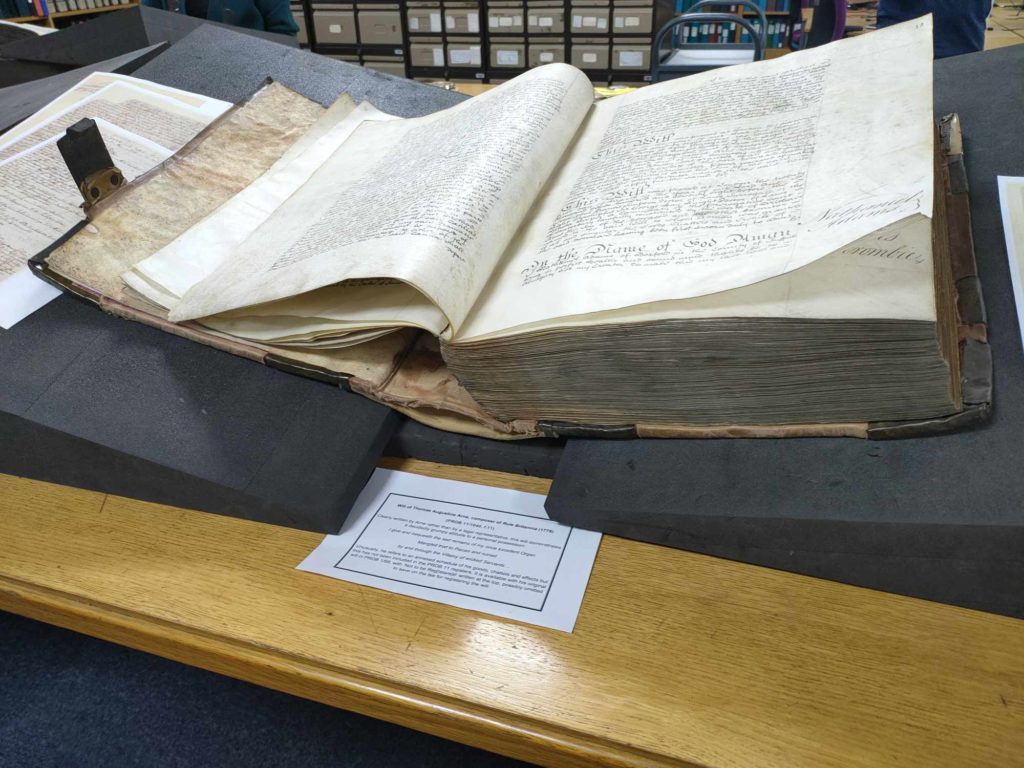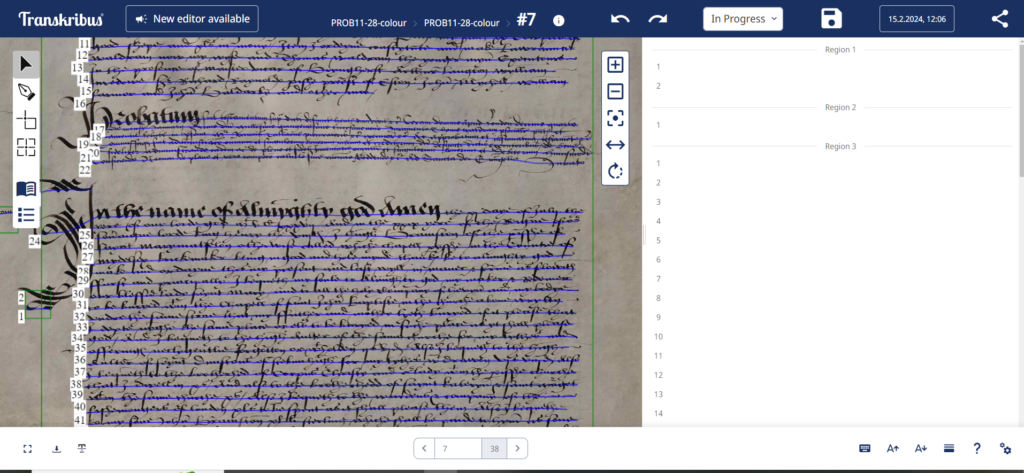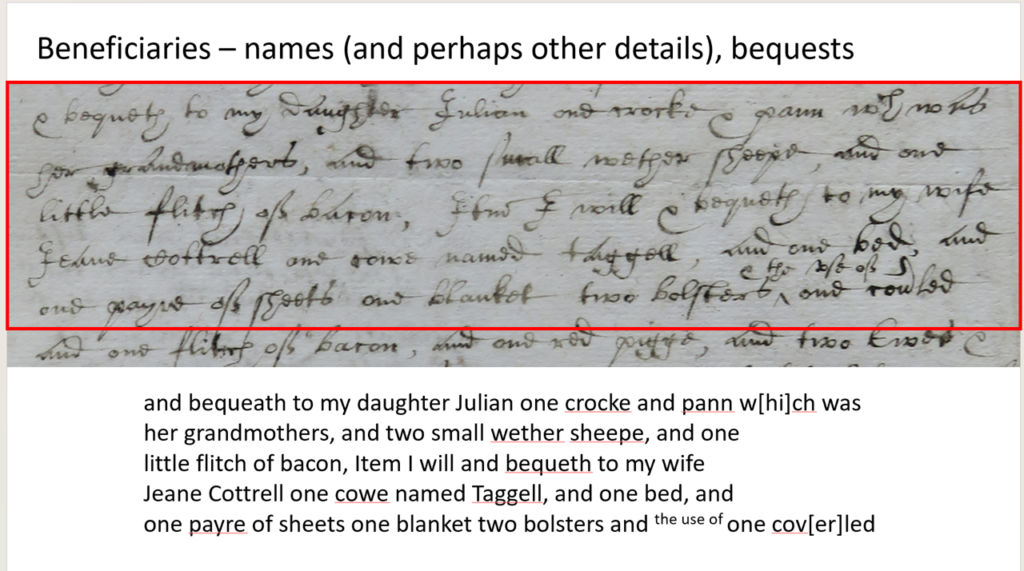Posted by e.m.vine@exeter.ac.uk
5 March 2024Hello, and welcome to our first ‘Project Progress’ blog post. In this blog post you will find an overview of some of the things we’ve been up to since the project launched in November 2023, and we look ahead to some exciting activities happening over the next few months.
VIEWING ORIGINAL MANUSCRIPT WILLS
In November we held our first in-person project meeting, which took place at The National Archives in Kew. We had the opportunity to meet early modern records specialist Ruth Selman, and to have a look at the original Prerogative Court of Canterbury (PCC) will registers, as well as other early modern wills and probate inventories that Ruth had kindly brought out for us to view.

DIGITISING A SAMPLE OF WILLS
Since viewing the PCC will registers in person, we’ve been thinking about how to select a sample of pages and volumes to be digitised. High-quality colour photographs make the wills easier to read and transcribe than the existing black and white microfilms. We will be using these high-quality colour photographs to help us train our initial Handwritten Text Recognition (HTR) model.
In selecting our sample of wills to be photographed, we’ve tried to account for a range of different types of handwriting (selecting wills from throughout the project timeframe of 1540-1790), as well as prioritising some wills that have poor quality microfilms because of minor damage to the page.
SETTING THINGS UP FOR OUR EXPERT VOLUNTEERS
Our first batch of transcriptions, which will be produced from these colour photographs, will be transcribed by our team of Expert Volunteers. We were delighted with the enthusiastic response to our call for volunteers, and have now recruited all our Expert Volunteers for this stage of the project. Expert Volunteers will begin their transcriptions in the next couple of weeks. They will be using an application called Transkribus, and the project team have been working hard behind the scenes to test out the functionality of Transkribus, and to put together a comprehensive handbook for our volunteers to refer to.

GETTING THE WORD OUT
We’ve also invested time designing and creating our project website, and establishing twitter/X and Bluesky accounts.
The project blog is also now up and running, with an introductory post on the content of wills, and the first in our ‘Will of the Month’ series. These posts will highlight some of the most exciting or unusual wills that we find during the project.
The project team have now delivered three project talks. In February, co-Investigator Dr Laura Sangha gave a talk which was jointly hosted by the University of Plymouth and the Plymouth branch of the Historical Association. Since then, Laura has introduced the project to the University of Reading Early Modern Research Centre, and was joined by Research Fellow Dr Emily Vine to deliver a hybrid seminar for the Exeter Centre for Early Modern studies. The talks have confirmed a really high level of interest in early modern wills, and have yielded some excellent suggestions of things to look out for (like musical or scientific instruments or horticultural tools).

In related news, Professor Jane Whittle and Dr Harry Smith have separately written this blog post for the London Review of Books which responds to the Ministry of Justice’s consultation on the storage of the UK’s post-1858 wills.
WHAT’S NEXT …
ADVISORY BOARD MEETING
At the beginning of March we’re having our first project advisory board meeting. We’ll present an overview of our project and report on initial progress to our advisory board, which comprises early modern record specialists, experts in early modern social, economic, and cultural history, a volunteer representative, and digital humanities specialists.
LONGER TERM
In the next couple of months we’ll be opening up our project to ‘Stage 2’ volunteers. This Volunteer Community will work with us on the ‘Zooniverse’ platform to check excerpts of will transcriptions.
It will be a busy time as the project really kicks into gear. In the meantime we’re looking forward to working with our expert volunteers, and hope to share some initial findings with you in the near future.
Thank you for your continued interest in the project.